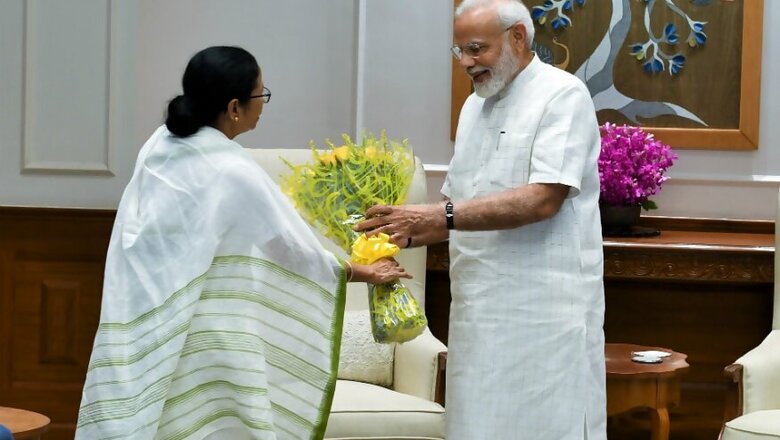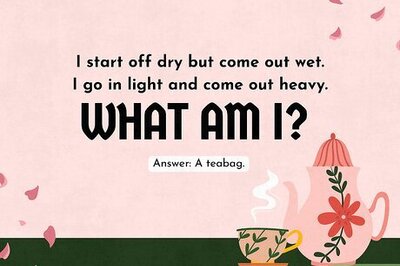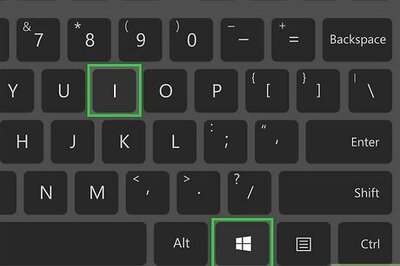
views
When Prime Minister Narendra Modi held a series of consultations with chief ministers and opposition leaders over the past month on how they could and should work together to combat the coronavirus crisis, it was believed the term "cooperative federalism" popularised by him, had finally become a reality.
Genuine efforts were made by both sides to see that the Centre and the states were on the same page in managing the pandemic. Though the state governments had their share of grievances with New Delhi over the lack of resources, testing kits and, most importantly, the issue of migrants, these differences were not allowed to degenerate into political name-calling.
The overwhelming view was that the Centre and states must set aside their differences and put up a united front in this hour of crisis. If the Modi government was willing to extend an olive branch to the states, the latter were quick to reciprocate. Both had their compulsions: since health is a state subject, the Centre had to work in tandem with chief ministers. On their part, the states depend on the Centre for allocation of additional resources to handle the coronavirus outbreak.
However, this spirit of mutual bonhomie and unity proved to be short lived when the Modi government suddenly decided to play "big brother" and send inter-ministerial teams to four states to monitor how they were handling the Covid-19 pandemic and whether they were implementing the lockdown guidelines laid down by New Delhi. Of the four states, three (West Bengal, Rajasthan and Maharashtra) are in the opposition camp. Madhya Pradesh is the only BJP-ruled state to be included in this list.
Technically, the Modi government could not be accused of interfering in the functioning of state governments since it has invoked the Disaster Management Act which gives it necessary powers to oversee operations and issue directions to states on containing the pandemic.
But the choice of the states clearly indicates that federal cooperation had been forgotten and that politics was at play once again. Or maybe, it was an opportunity for Modi to put his personal stamp on the ongoing management of Covid-19, especially since chief ministers were being increasingly lauded for the deftness with which they were managing this public health emergency.
West Bengal chief minister Mamata Banerjee was quick to cry foul as she accused the Centre of deviating from federal principles and trampling on the powers of state governments.
The team's visit resulted in a face-off between the two sides and though their differences were eventually resolved, it was, at best, an uneasy truce. Trinamool Congress leaders charged that opposition states were being targeted, while states like BJP-ruled Gujarat and Tamil Nadu, which has a friendly political party at the helm, were left out though the number of coronavirus cases here are consistently going up.
There is some merit in the argument. It is no secret that the BJP has been working to put down roots in West Bengal for the past several years now and has succeeded in expanding its footprint here. The saffron party is clearly eyeing next year's assembly polls and believes the pandemic is yet another opportunity to discredit the Mamata Banerjee government.
As it is, the West Bengal chief minister took control of the narrative during the protests against the new citizenship law and the proposed National Register of Citizens. The BJP's local unit was no match for the Trinamool Congress which successfully convinced the people that the Centre's move would deprive them of their citizenship.
With news coming in that Trinamool Congress cadres were being deployed to distribute rations during the current coronavirus crisis, the BJP felt the need to step in. Or else it would be advantage Mamata Banerjee once again.
While West Bengal was the chief target in this latest exercise, the Centre's decision to include Rajasthan in the list of states requiring monitoring has raised eyebrows.
So far, the Rajasthan government has been praised for its management of the pandemic, while the "Bhilwara model" has been adopted by other states. Here again, political motives cannot be ruled out.
After the BJP successfully captured power in Madhya Pradesh, it is speculated that the desert state is next on its radar. Rajasthan chief minister Ashok Gehlot and his deputy Sachin Pilot are locked in a turf war and the BJP obviously wants to take advantage of this internal tussle in the Congress.
It is perhaps for this reason that Gehlot has expressed his suspicion about the unnecessary delay in the Rajya Sabha election, ostensibly due to Covid-19. But the real reason would well be something else.
And finally, this entire exercise has answered the oft-repeated question: Where is Home Minister Amit Shah? He may not be his usual visible or vocal self during the current crisis but Shah obviously has his hands full ensuring that the BJP's political agenda is not neglected.
(Author is a senior journalist. Views are personal)




















Comments
0 comment